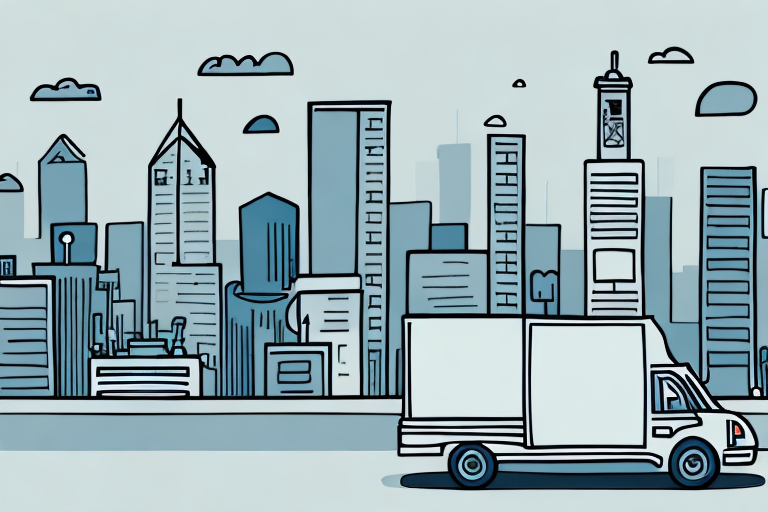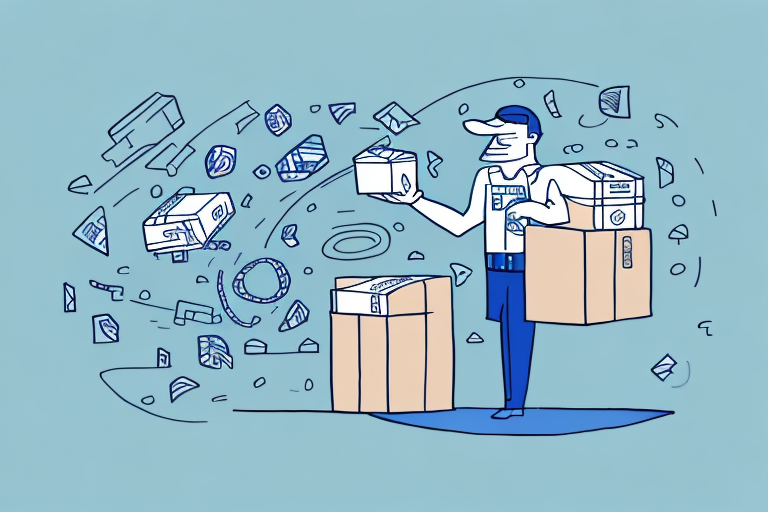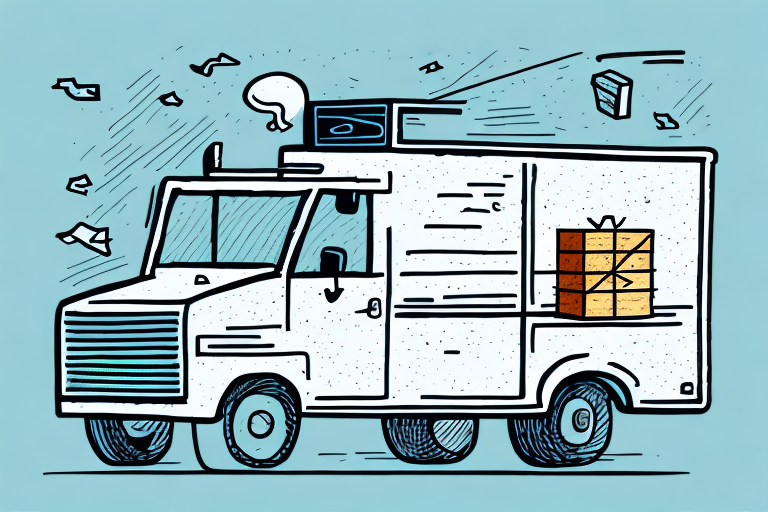Discover the Benefits of Delivery Contract Jobs in 2024
Delivery contract jobs have surged in popularity over recent years, driven by the expansion of e-commerce and the gig economy. These roles offer numerous advantages for both workers and the companies they serve. In this article, we delve into the reasons behind the high demand for delivery contract jobs, strategies to find them locally, the benefits of working as a delivery contractor, expectations in the field, success tips, pay negotiation tactics, common misconceptions, essential safety measures, and the future outlook of this industry within the gig economy.
1. Why Delivery Contract Jobs Are in High Demand
The E-Commerce Boom
The exponential growth of e-commerce has significantly heightened the demand for delivery contract jobs. According to the Statista E-commerce Report 2023, global online sales are projected to reach $6.3 trillion by 2024, necessitating efficient and reliable delivery services to meet consumer expectations for fast and accurate deliveries.
Flexibility and the Gig Economy
Delivery contract roles offer unparalleled flexibility, allowing individuals to set their own schedules and balance other commitments such as education or family responsibilities. This flexibility is a cornerstone of the gig economy, which prioritizes short-term contracts over traditional long-term employment. Platforms like Uber Eats and DoorDash have made it easier for workers to find and engage in delivery contract jobs, contributing to their rising popularity.
Impact of the COVID-19 Pandemic
The COVID-19 pandemic accelerated the shift towards online shopping, further increasing the need for delivery services. A Bureau of Labor Statistics report highlights that employment in delivery and couriers services grew by 7.2% from 2020 to 2023, reflecting the sustained increase in demand even as traditional retail started to recover.
2. How to Find Delivery Contract Jobs in Your Area
Online Job Portals and Gig Platforms
Platforms such as Indeed, ZipRecruiter, and gig-specific sites like Uber Eats and DoorDash are excellent starting points for finding delivery contract opportunities. These platforms often list a wide range of positions across various regions.
Local Businesses and Networking
Approaching local businesses such as restaurants, grocery stores, and pharmacies can uncover delivery contract opportunities that may not be advertised online. Networking with existing delivery contractors through community events or online forums can also lead to valuable job leads and insider tips.
Utilizing Social Media and Community Boards
Advertising your services on social media platforms like Facebook and LinkedIn, as well as community bulletin boards, can help attract potential clients. Creating a professional online presence can enhance your visibility and credibility in the market.
3. Advantages of Working as a Delivery Contractor
Flexibility and Autonomy
One of the primary advantages of delivery contract jobs is the ability to choose your working hours and workload. This autonomy allows workers to tailor their schedules to fit personal needs and preferences, making it an ideal option for those seeking work-life balance.
Opportunity for Exploration and Physical Activity
Delivery contractors often explore different neighborhoods and areas, which can be an enjoyable way to discover new places and engage with diverse communities. Additionally, the physical nature of the job promotes an active lifestyle, contributing to overall health and well-being.
Potential for Good Income
With the right strategies and dedication, delivery contractors can earn a substantial income. According to a Bureau of Labor Statistics report, the median hourly wage for couriers was $16.28 in 2023, with opportunities for tips and bonuses further enhancing earnings.
4. What to Expect When Working as a Delivery Contractor
Workload and Physical Demands
Delivery contracting can involve a significant workload, including lifting and carrying heavy items. Efficiency and physical stamina are essential to handle the demands of the job, especially during peak times.
Customer Interaction and Time Management
Interacting with customers requires excellent communication skills and professionalism. Effective time management is crucial to ensure timely deliveries, which may involve optimizing routes using GPS technology and prioritizing tasks to meet deadlines.
Challenges in the Field
Issues such as traffic congestion, navigating unfamiliar areas, and dealing with difficult customers are common challenges faced by delivery contractors. Developing problem-solving skills and resilience can help mitigate these obstacles.
5. Tips for Succeeding in Delivery Contract Jobs
Develop Strong Time Management Skills
Efficiently planning routes and managing delivery schedules are vital for maintaining productivity and meeting deadlines. Utilizing GPS and route optimization tools can enhance efficiency.
Maintain Reliable Transportation
Having a dependable vehicle, whether it's a car, bicycle, or scooter, is essential for consistent performance. Regular maintenance and having a backup plan can prevent unexpected disruptions.
Enhance Customer Service
Building a positive rapport with customers can lead to repeat business and higher tips. Professionalism, punctuality, and clear communication are key components of excellent customer service.
Stay Updated with Technology
Keeping abreast of the latest delivery apps and software can streamline operations and improve service quality. Tools for tracking deliveries, managing orders, and processing payments can enhance overall efficiency.
6. Negotiating Your Pay as a Delivery Contractor
Research Market Rates
Understanding the prevailing rates in your area is crucial before negotiating pay. Factors such as delivery distance, package weight, and peak hours can influence rates. Websites like Salary.com provide valuable insights into standard compensation.
Assess the Type of Deliveries
Delivering specialized items such as fragile or perishable goods may warrant higher pay due to the additional care required. Similarly, offering expedited or same-day delivery services can justify premium rates.
Aim for Fair and Mutually Beneficial Agreements
Negotiations should consider both the contractor’s need for fair compensation and the client's budget constraints. Striving for a balanced agreement fosters long-term working relationships.
7. Common Misconceptions About Delivery Contract Jobs
Limited Growth Opportunities
Contrary to popular belief, delivery contracting is not just an entry-level position. Experienced contractors can advance by taking on more complex deliveries, managing larger accounts, or even starting their own delivery businesses.
Dependence on Vehicle Ownership
While having a vehicle can be advantageous, many delivery contracting jobs are accessible with bicycles or scooters. Some companies also provide vehicles, making it feasible for individuals without personal transportation to participate.
Income Limitations
Delivery contracting offers the potential for lucrative earnings, especially when factoring in tips and bonuses. With strategic planning and efficiency, contractors can significantly increase their income beyond initial expectations.
8. How to Stay Safe While Working as a Delivery Contractor
Plan Your Routes and Stay Aware
Mapping out delivery routes in advance and remaining vigilant of your surroundings are essential for personal safety. Avoiding high-risk areas and traveling during daylight hours can reduce potential risks.
Invest in Safety Gear
Proper safety equipment, such as reflective clothing, sturdy footwear, and helmets (if cycling or scootering), can enhance visibility and protect against accidents.
Secure Your Vehicle and Packages
Always lock your vehicle when making deliveries to prevent theft. Ensuring that packages are securely stored also minimizes the risk of loss or damage.
Trust Your Instincts
If a situation feels unsafe, do not hesitate to leave or seek assistance. Prioritizing your safety is paramount in maintaining a sustainable delivery contracting career.
9. The Future of Delivery Contract Jobs in the Gig Economy
Technological Advancements
The delivery industry is poised for significant changes with the introduction of drones, autonomous vehicles, and advanced logistics software. These technologies have the potential to enhance efficiency and open new avenues for delivery contractors.
Integration with the Gig Economy
Delivery contracting continues to play a vital role in the gig economy, providing flexible employment opportunities and contributing to the overall growth of on-demand services. The adaptability of this sector ensures its resilience and ongoing relevance in the modern workforce.
Sustainability and Environmental Impact
As sustainability becomes increasingly important, delivery contractors can contribute by adopting eco-friendly practices such as using electric vehicles or bicycles. Companies are also focusing on reducing their carbon footprint, which can lead to greener delivery options.
Conclusion
Delivery contract jobs offer significant benefits, including flexibility, independence, and the potential for substantial income. With the right approach, effective time management, and a focus on customer satisfaction, individuals can excel in this field and build a successful career. However, it is essential to consider the inherent challenges, such as managing expenses and navigating the uncertainties of the gig economy. By staying informed, prioritizing safety, and leveraging technological advancements, delivery contractors can thrive in this dynamic and evolving industry.






















